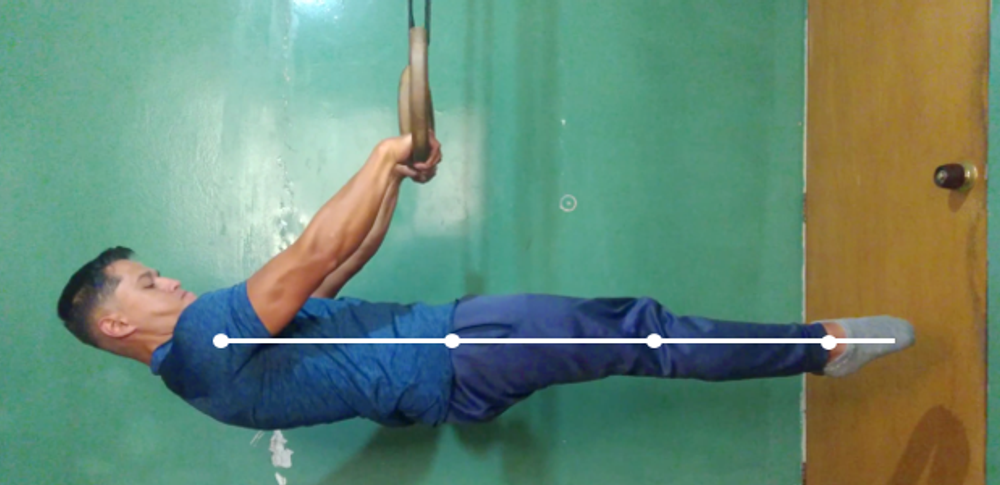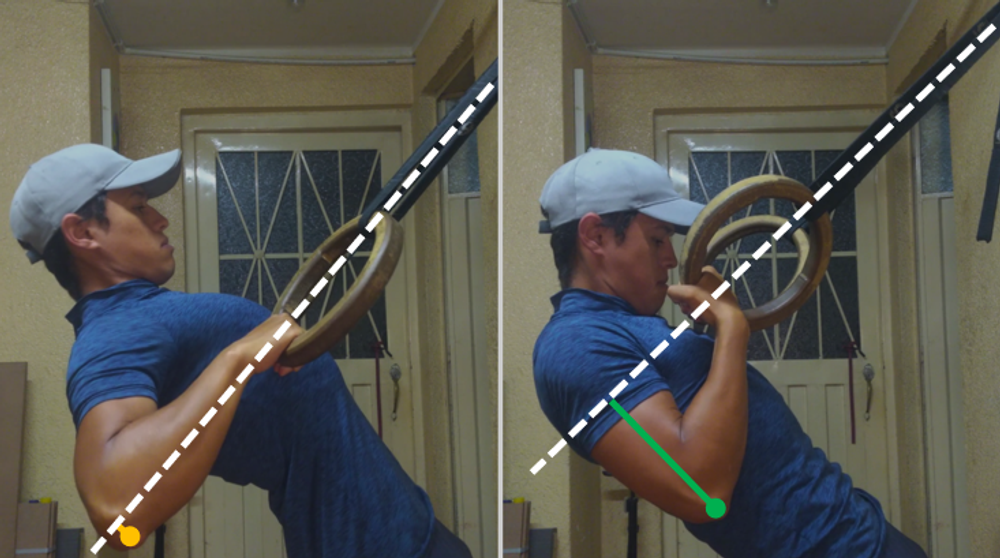During my experience training calisthenics, training all types of people and helping many of you improve your results, there has always been something that has caught my attention and that I have tried to correct when we speak in person.
Something that I think usually goes unnoticed but is very important. Something that has a greater effect than you may think and that could increase your results very significantly. I mean how you talk to yourself.
You see, for me it is a common experience to ask someone to do an exercise that I know they can do, or a number of repetitions that I am sure they can achieve and that the first thing he tells me, almost instantly, is “I can't” or something similar.
Also in situations in which we are talking about that person's capacity, for example phrases like "I'm terrible at dips" or "I'm terrible at endurance" or "I have no strength." Or even talking about his physique, things like “I have a sh… body” or “I'm f… skinny” or “I'm f… fat.”
This has always made me wonder, and worry, about what their internal dialogue will be like, knowing how important this issue is. If you say those things when talking to other people, I don't even want to imagine how you talk to yourselves inside.
In today's article we are going to see how important this issue is and what concrete results improving it can give you. We will also see how you can change your internal dialogue with concrete examples, the experience of some of the best athletes in the world in this regard and much more.
What science says about positive self-talk
First let's see what science says about it (references at the end of the article), since it is the most reliable and effective way we currently have of knowing the truth, and in this sense it is quite clear.
The studies that have been done intervening in internal dialogue are mostly in endurance athletes, usually cyclists or runners. And it has been seen that positive self-talk with phrases like “I feel good,” “I can handle this,” or “keep fighting” significantly improves the results of those athletes compared to those who have negative self-talk. In addition, it was also seen that those athletes with positive self-talk have a lower perception of effort, and can more easily endure extreme temperatures during training.
How to apply it to your training, examples
Let's now see how to apply this in your training so that you can improve your results now.
First of all, monitor what you say to yourself, learn to pay attention to the phrases you say to yourself in your mind and get a small mental alarm to go off when you are speaking negatively to yourself. When this happens, simply think about how you could transform that thought into something positive.
Try to say phrases like “yes I can”, “I'm doing well”, “I have enough strength”, “I'm getting there”, “each repetition makes me stronger” more frequently. Or some of the other examples you see below:
- "I can exceed my limits"
- "My body is capable of doing it"
- "I'm motivated"
- "I'm getting better"
- "I have discipline"
- "I have endurance"
- "My mind and my body are working"
- "I enjoy the challenge"
- "I'm constant"
- "I am stronger than I think"
- "I am closer to my goals."
- "I'm focused on achieving it"
- "I'm growing"
- "I am proud of my effort"
- "My body responds well"
- "I can overcome any obstacle."
- "I feel energetic"
- "Every day I get closer to the best version of myself."
- "My commitment to training is unwavering."
Third, build up positive self-talk over time. Now what I ask you is that you try to maintain these small changes in your internal dialogue over time and gradually change more and more negative phrases into positive ones.
In the studies we saw before, a significantly positive effect was observed in short periods of time, so we can understand that if we accumulate these positive changes in longer periods of time, in the long term, we will add positive results and the difference will be even more notable regarding what would have happened with our old negative dialogue.
In other words, if in a few days or weeks of positive dialogue, the athletes in the studies achieved small improvements in their results and performances, what can happen in months or years by applying this positivity? We can only speculate, but it seems very promising to me.
How the best athletes in the world deal with internal dialogue
Now I am going to leave you the testimonies of Javi Alés, Jaime Jumper and Pera Coll, whom I have personally asked for their vision on how they face internal dialogue.
But first, remind you that in our Calisteniapp application you have free routines, training programs, Smart Routines and Challenges so that you have everything you need to achieve your goals and we are about to launch a mega update in which we add and improve many functions that you have been asking us for for a long time, so I hope it may be very useful to you. You can download it on Google Play and the Apple Store.
Regarding Javi Alés, he tells us that in his internal dialogue he has lights and shadows, since negative thoughts usually arise regarding the possible superiority of his rivals, and he has to fight against them by repeating to himself that he is capable of defeating them.
I also asked Pera Coll about this topic and it is curious because he actually uses the visualization technique much more, which has also proven to be very effective, and which we saw in another article. But if we realize in the end, visualization is a way to convince yourself that you can achieve a certain goal, but instead of convincing yourself with words, you do it with images.
Finally, we have the testimony of Jaime Jumper, who has one of the most epic stories of improvement in calisthenics, where he started practically from nothing and had to work extremely hard to defeat Javi Alés and make a name for himself in the world of endurance. In his case, internal dialogue has been key, trusting a lot in his possibilities and reminding himself of every small achievement or advance that he was achieving. Jaime tells us that his way of speaking to himself has been essential to persevere over time and finally manage to join the resistance elite worldwide.
Apply positive self-talk to all facets of life
To close the article, I would like to emphasize that positive self-talk is not only important in terms of training, but in your life in general, in your work, in your self-esteem, in your personal relationships, etc. So from here I encourage you to try to monitor his internal dialogue, review it and change it little by little in all facets of your daily life.
I hope the article is very helpful to you,
Yerai Alonso
References:
https://pubmed.ncbi.nlm.nih.gov/24121242/
https://pubmed.ncbi.nlm.nih.gov/27580154/
https://www.sciencedirect.com/science/article/abs/pii/S1053810021000283
https://pubmed.ncbi.nlm.nih.gov/24467424/
https://pubmed.ncbi.nlm.nih.gov/31135272/







